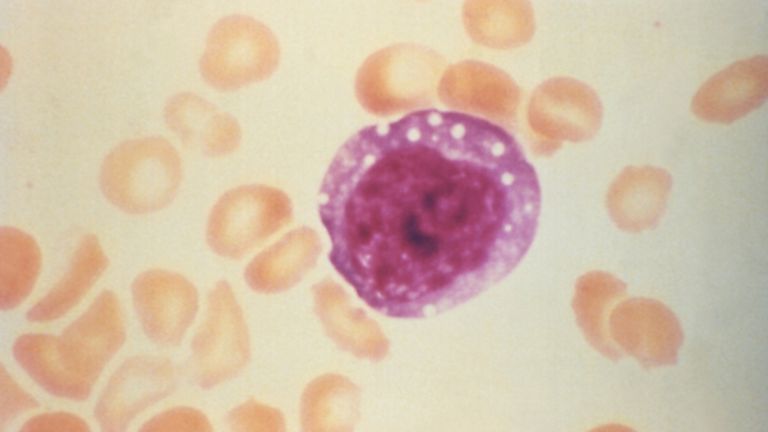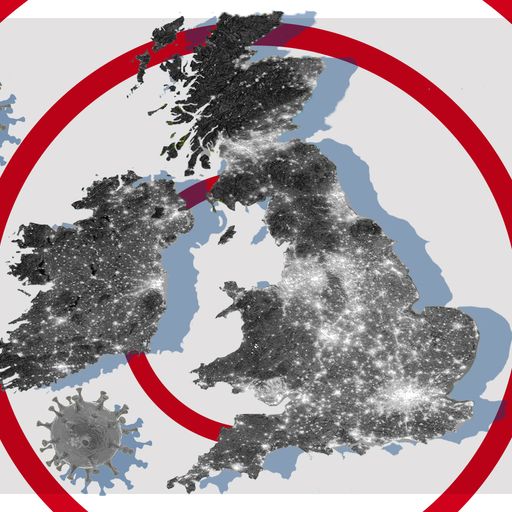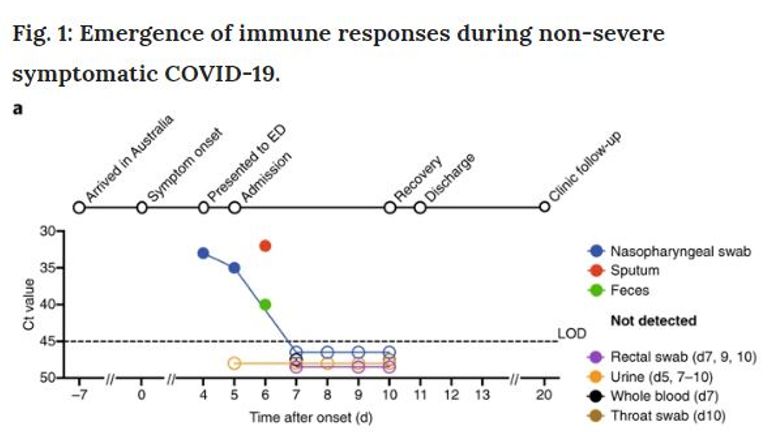Coronavirus: Scientists reveal how the body fights back against infection
The study tracked the development of white blood cells in an otherwise healthy woman during her recovery.
Wednesday 18 March 2020 06:53, UK
Scientists in Australia say they have for the first time mapped how the body's immune system responds to coronavirus, an important step in the possible creation of an effective vaccine.
Researchers at the Peter Doherty Institute for Infection and Immunity in Melbourne were able to test blood samples at four different time points in an otherwise healthy woman in her 40s, who presented with COVID-19 and had mild-to-moderate symptoms.
The report, published in the journal Nature Medicine, focused on a 47-year-old woman from Wuhan, Hubei province, China who had travelled to Australia 11 days before she began to display symptoms.
She turned up at a Melbourne A & E complaining of lethargy, sore throat, dry cough, pleuritic chest pain, shortness of breath and fever.
She was otherwise healthy and was a non-smoker taking no medications. Her condition was managed through intravenous fluid rehydration without supplemental oxygenation. No antibiotics, steroids or antiviral agents were used.
The research team was able to use her blood samples to map the response of her immune system to the virus.
One of the authors of the paper, research fellow Dr Oanh Nguyen said this was the first time that broad immune responses to COVID-19 have been reported.
"We looked at the whole breadth of the immune response in this patient using the knowledge we have built over many years of looking at immune responses in patients hospitalised with influenza," Dr Nguyen said.
"Three days after the patient was admitted, we saw large populations of several immune cells, which are often a tell-tale sign of recovery during seasonal influenza infection, so we predicted that the patient would recover in three days, which is what happened."
Working together with Professor Katherine Kedzierska, a leading influenza immunology researcher at the University of Melbourne, the team was able to dissect the immune response leading to successful recovery from COVID-19, which might be the secret to finding an effective vaccine.
"We showed that even though COVID-19 is caused by a new virus, in an otherwise healthy person, a robust immune response across different cell types was associated with clinical recovery, similar to what we see in influenza," Professor Kedzierska said.
:: Listen to the Daily podcast on Apple Podcasts, Google Podcasts, Spotify, Spreaker.
"This is an incredible step forward in understanding what drives recovery of COVID-19. People can use our methods to understand the immune responses in larger COVID-19 cohorts, and also understand what's lacking in those who have fatal outcomes."
In other developments:
- The Chinese city of Wuhan - the original epicentre of the COVID-19 outbreak - has reported just one new case of the virus for the second day in a row, as China reported only 13 new cases on Wednesday
- Canada and the US are considering a mutual ban on non-essential travel between the two countries, according to a Canadian government official
- Tunisia has announced a nationwide curfew, with citizens in lockdown from 6pm to 6am
- At least 17 elderly people from a Madrid nursing home have died in the last five days, the Spanish city's regional authorities have said
- The youngest UK victim has been named as 45-year-old Craig Ruston, a father-of-two with motor neurone disease (MND)
- UK Chancellor Rishi Sunak has unveiled plans to offer £330bn in government-backed loans to businesses struggling in the face of the coronavirus pandemic
- Nevada's governor has ordered the closure of the casinos in Las Vegas for a month, along with other non-essential businesses in the state
Dr Thevarajan said that current estimates show more than 80 per cent of COVID-19 cases are mild-to-moderate, and understanding the immune response in these mild cases is very important research.
"We hope to now expand our work nationally and internationally to understand why some people die from COVID-19, and build further knowledge to assist in the rapid response of COVID-19 and future emerging viruses," she said.






